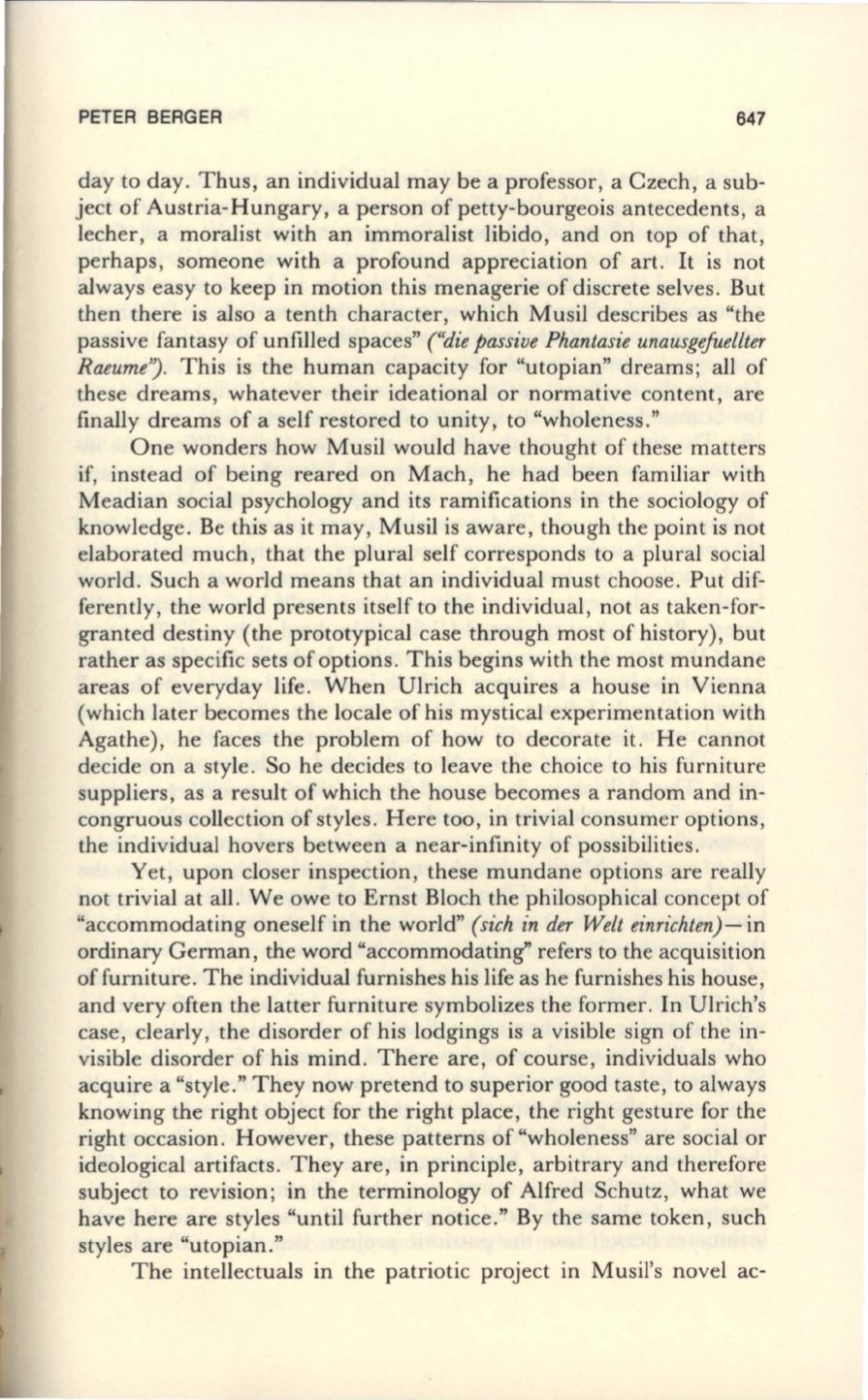
PETER BERGER
647
day to day. Thus, an individual may be a professor, a Czech, a sub–
ject of Austria-Hungary, a person of petty-bourgeois antecedents, a
lecher, a moralist with an immoralist libido, and on top of that,
perhaps, someone with a profound appreciation of art. It is not
always easy to keep in motion this menagerie of discrete selves. But
then there is also a tenth character, which Musil describes as "the
passive fantasy of unfilled spaces"
(''die passive Phantasie unausgefuellter
Raeume").
This is the human capacity for "utopian" dreams; all of
these dreams, whatever their ideational or normative content, are
finally dreams of a self restored to unity, to "wholeness."
One wonders how Musil would have thought of these matters
if, instead of being reared on Mach, he had been familiar with
Meadian social psychology and its ramifications in the sociology of
knowledge. Be this as it may, Musil is aware, though the point is not
elaborated much, that the plural self corresponds to a plural social
world. Such a world means that an individual must choose. Put dif–
ferently, the world presents itself to the individual, not as taken-for–
granted destiny (the prototypical case through most of history), but
rather as specific sets of options. This begins with the most mundane
areas of everyday life. When Ulrich acquires a house in Vienna
(which later becomes the locale of his mystical experimentation with
Agathe), he faces the problem of how to decorate it. He cannot
decide on a style. So he decides to leave the choice to his furniture
suppliers, as a result of which the house becomes a random and in–
congruous collection of styles. Here too, in trivial consumer options,
the individual hovers between a near-infinity of possibilities.
Yet, upon closer inspection, these mundane options are really
not trivial at all. We owe to Ernst Bloch the philosophical concept of
"accommodating oneself in the world"
(sich in der Welt einrichten)-
in
ordinary German, the word "accommodating" refers to the acquisition
of furniture. The individual furnishes his life as he furnishes his house,
and very often the latter furniture symbolizes the former. In Ulrich's
case, clearly, the disorder of his lodgings is a visible sign of the in–
visible disorder of his mind. There are, of course, individuals who
acquire a "style." They now pretend to superior good taste, to always
knowing the right object for the right place, the right gesture for the
right occasion. However, these patterns of "wholeness" are social or
ideological artifacts. They are, in principle, arbitrary and therefore
subject to revision; in the terminology of Alfred Schutz, what we
have here are styles "until further notice." By the same token, such
styles are "utopian."
The intellectuals in the patriotic project in Musil's novel ac-


